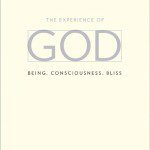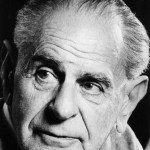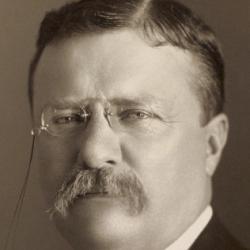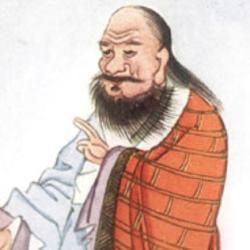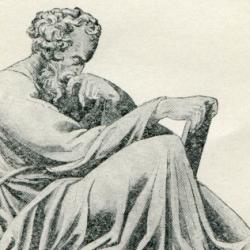To Aristotle and classical theists (a club which I am a proud member), God is the ultimate cause and necessity of which all contingent things depend. In the Aristotelian view, Wisdom relies on understanding causation which include material, efficient, formal, and final causes. God is pure Act, the final cause toward which all things move. The final cause, which Aristotle also labels the first cause, is often confused for the efficient cause, positing god as “a being” who simply set the world in motion, rather than God as “Being itself”. The magnitude of difference cannot be understated. Here’s a gem from Robert Solomon and Kathleen Higgins on the difference between “a god” and “God” (Aristotle’s conception which would become the “God of the philosophers.”):
“With Aristotle, more than any other Greek before, we get an explicit idea of God that is totally devoid of anthropomorphism, a principle rather than a person… It is Aristotle who gives us what will later be called… ‘the God of the philosophers’… It must not be thought that Aristotle’s God is a mere physical principle, a ‘first cause’ that initiates the development of the universe, like the God of the eighteenth-century ‘Deists”. God did not just appear and then go out of existence. And as always with Aristotle, the concept is above all teleological. Every activity has a telos, an ideal that lies at its end, not outside the World of Being but within the activity itself… The ultimate end of the cosmos itself, the only form which exists in itself and apart from any matter, is God. God is the unmoved mover, who keeps the stars and planets in their paths, who maintains life in the universe. God is eternal and complete in Himself. He is all actuality, the final end, the aspiration, the purpose toward which all things move and (try to) realize their potential. Meanwhile, God is fully realized activity, the activity of pure thinking, ‘thought of thinking itself’… The difference between a purely physical notion of God as a first cause, who simply sets the world in motion, and a teleological notion of God, understood at the world’s ultimate purpose, underscores the central Aristotelian concept of ‘cause’. (Robert Solomon and Kathleen Higgins, A Short History of Philosophy, pages 60-61)
Image source: Wiki Commons


